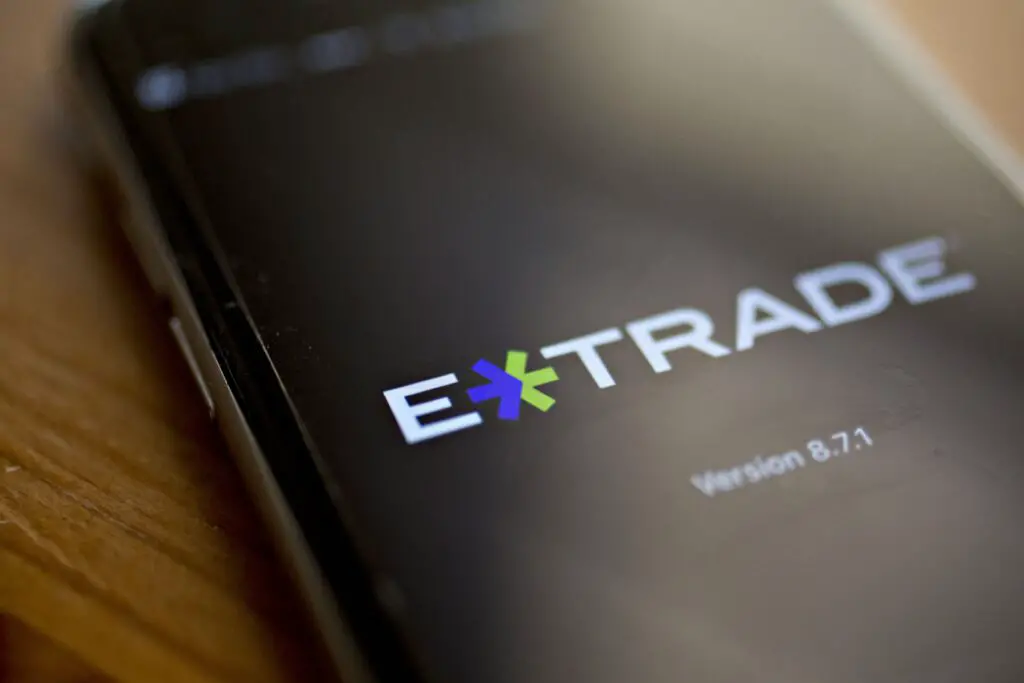ETRADE, a prominent online brokerage platform, does not currently offer direct trading or purchasing of cryptocurrencies such as Bitcoin, Ethereum, or Dogecoin through its platform. For investors looking to engage directly with the cryptocurrency market, ETRADE is not an option for purchasing these digital assets directly.
However, E*TRADE clients interested in gaining exposure to the cryptocurrency sector have several indirect options. One way is through investing in crypto-related stocks, such as those of companies that are significantly involved in the cryptocurrency industry. These stocks may include blockchain technology firms, crypto mining companies, or companies that hold significant amounts of cryptocurrencies on their balance sheets.
Another avenue for ETRADE users to gain crypto exposure is through investment products like Bitcoin Trusts, ETFs (Exchange-Traded Funds), or investing in futures products that track the price of cryptocurrencies. These instruments allow investors to speculate on the price movements of cryptocurrencies without owning the actual digital assets. For instance, ETRADE offers CFTC-regulated futures contracts for Bitcoin and Ether, providing a way to engage with the cryptocurrency market through a regulated financial product.
It’s important to note that these indirect methods of investing in cryptocurrencies come with their own set of risks and considerations, such as the potential for significant price volatility and the lack of direct ownership of the digital assets. Investors should conduct thorough research and consider their investment goals and risk tolerance when exploring these options.
For direct cryptocurrency trading and investment, platforms specifically designed for cryptocurrency trading, such as Coinbase, Kraken, and eToro, offer a wide range of services including the ability to buy, sell, and hold cryptocurrencies, as well as features like staking, futures trading, and more sophisticated trading tools catered to both beginners and experienced traders. These platforms provide real crypto exposure with a focus on making the trading experience accessible and comprehensive.
While E*TRADE does not offer direct cryptocurrency trading, investors can still gain exposure to the crypto market through various indirect investment vehicles available on the platform. For direct engagement with cryptocurrencies, dedicated crypto trading platforms would be the appropriate choice.
When considering the decision between indirect exposure to cryptocurrencies through platforms like E*TRADE and direct ownership via cryptocurrency exchanges, it’s crucial for investors to weigh the pros and cons of each approach based on their individual investment goals, risk tolerance, and the level of control they desire over their investments.
Indirect Exposure through E*TRADE:
Pros:
Access to cryptocurrency markets through familiar, regulated financial products.
Ability to invest in crypto-related companies and funds, potentially diversifying investment portfolios.
No need to manage cryptographic keys or navigate the technical complexities of cryptocurrency wallets and exchanges.
Cons:
Indirect exposure means investors do not own the actual cryptocurrency, which may limit potential benefits from specific crypto market movements.
The performance of crypto-related stocks or ETFs may not fully correlate with the underlying cryptocurrencies’ price movements.
Trading hours limitations for stocks and ETFs, unlike the 24/7 cryptocurrency markets.
Direct Ownership through Cryptocurrency Exchanges:
Pros:
Direct ownership of cryptocurrencies, with the potential for direct participation in the growth and value appreciation of digital assets.
Greater control over investment choices, with access to a wider range of cryptocurrencies and investment strategies.
Flexibility to engage in advanced trading techniques, such as staking or participating in decentralized finance (DeFi) platforms.
Cons:
Requires more technical knowledge to safely manage and store cryptocurrencies.
Potentially higher risk due to the volatility of cryptocurrency markets and the security risks associated with digital asset storage.
Regulatory uncertainty in some jurisdictions, which could affect the accessibility and legality of certain crypto investments.
Investors must conduct due diligence and possibly consult with financial advisors to understand the implications of investing in cryptocurrencies directly or indirectly. The choice depends on an individual’s investment strategy, risk appetite, and the level of involvement they wish to have in the cryptocurrency space.
For those interested in exploring direct cryptocurrency investments, platforms like Coinbase, Kraken, and eToro provide comprehensive services tailored to both new and experienced investors. These platforms offer educational resources, user-friendly interfaces, and a range of tools designed to facilitate informed trading decisions. On the other hand, for those seeking a more traditional investment route with a touch of exposure to the crypto market, E*TRADE’s offerings of crypto-related stocks, ETFs, and futures could serve as a gateway to the sector within a regulated and familiar trading environment.
In conclusion, whether opting for direct or indirect cryptocurrency investment paths, it’s vital for investors to stay informed about market trends, regulatory developments, and the inherent risks involved in crypto investments. By carefully considering their options and making informed decisions, investors can navigate the complexities of the cryptocurrency market and identify opportunities that align with their financial goals.
Frequently Asked Questions about Cryptocurrency Investments on E*TRADE and Other Platforms
Can I buy Bitcoin directly through E*TRADE?
No, ETRADE does not currently offer direct purchases of Bitcoin or other cryptocurrencies. However, investors can gain indirect exposure to cryptocurrencies through various financial products available on ETRADE, such as stocks of companies involved in the crypto space, ETFs, and futures contracts.
What are the best platforms for direct cryptocurrency trading?
For direct cryptocurrency trading, platforms like Coinbase, Kraken, and eToro are highly recommended. These platforms cater to a range of investors, from beginners to advanced traders, offering features like a wide selection of cryptocurrencies, staking, futures trading, and educational resources.
Are there any risks associated with trading cryptocurrencies?
Yes, trading cryptocurrencies carries several risks, including high price volatility, regulatory uncertainty, and security risks related to the storage and management of digital assets. It’s important for investors to conduct thorough research and consider their risk tolerance before engaging in cryptocurrency trading.
How can I start trading cryptocurrencies on platforms like Coinbase or Kraken?
To start trading cryptocurrencies on platforms like Coinbase or Kraken, you’ll need to create an account, verify your identity, and fund your account. These platforms offer step-by-step guides to help new users get started and often provide demo accounts or educational resources to familiarize users with trading processes and tools.
What should I consider when choosing a platform for cryptocurrency trading?
When choosing a cryptocurrency trading platform, consider factors such as the range of cryptocurrencies offered, fees and commissions, security measures, user interface, customer support, and educational resources. It’s also important to consider the regulatory status of the platform and its reputation within the cryptocurrency community.
Can I invest in cryptocurrencies through my retirement account on E*TRADE?
While you cannot directly purchase cryptocurrencies through retirement accounts on E*TRADE, you may be able to gain exposure to the cryptocurrency market through crypto-related stocks, ETFs, or other investment vehicles that are eligible for inclusion in retirement accounts. It’s advisable to consult with a financial advisor to explore your options.
What are the tax implications of trading cryptocurrencies?
The tax implications of trading cryptocurrencies can vary by jurisdiction. Generally, profits from cryptocurrency trading are subject to capital gains tax. It’s important to keep detailed records of your transactions and consult with a tax professional to ensure compliance with local tax regulations.
How do I secure my cryptocurrency investments?
Securing your cryptocurrency investments involves using strong, unique passwords for your accounts, enabling two-factor authentication, and using hardware wallets to store large amounts of cryptocurrencies offline. It’s also important to stay informed about security best practices and be cautious of phishing attempts and scams.
Are there any educational resources to learn more about cryptocurrency trading?
Yes, many cryptocurrency trading platforms offer educational resources, including articles, tutorials, webinars, and videos, to help users understand the cryptocurrency market, trading strategies, and risk management. Additionally, there are numerous independent websites, forums, and social media groups dedicated to cryptocurrency education.
How do I monitor the performance of my cryptocurrency investments?
Most cryptocurrency trading platforms provide tools to monitor the performance of your investments, including real-time price charts, portfolio tracking features, and alerts. Additionally, there are several third-party apps and websites that offer comprehensive portfolio management tools and market analysis.
For specific details about services, fees, and regulatory compliance, always refer to the official websites of the trading platforms and consult with financial and tax advisors to make informed decisions about your cryptocurrency investments.






